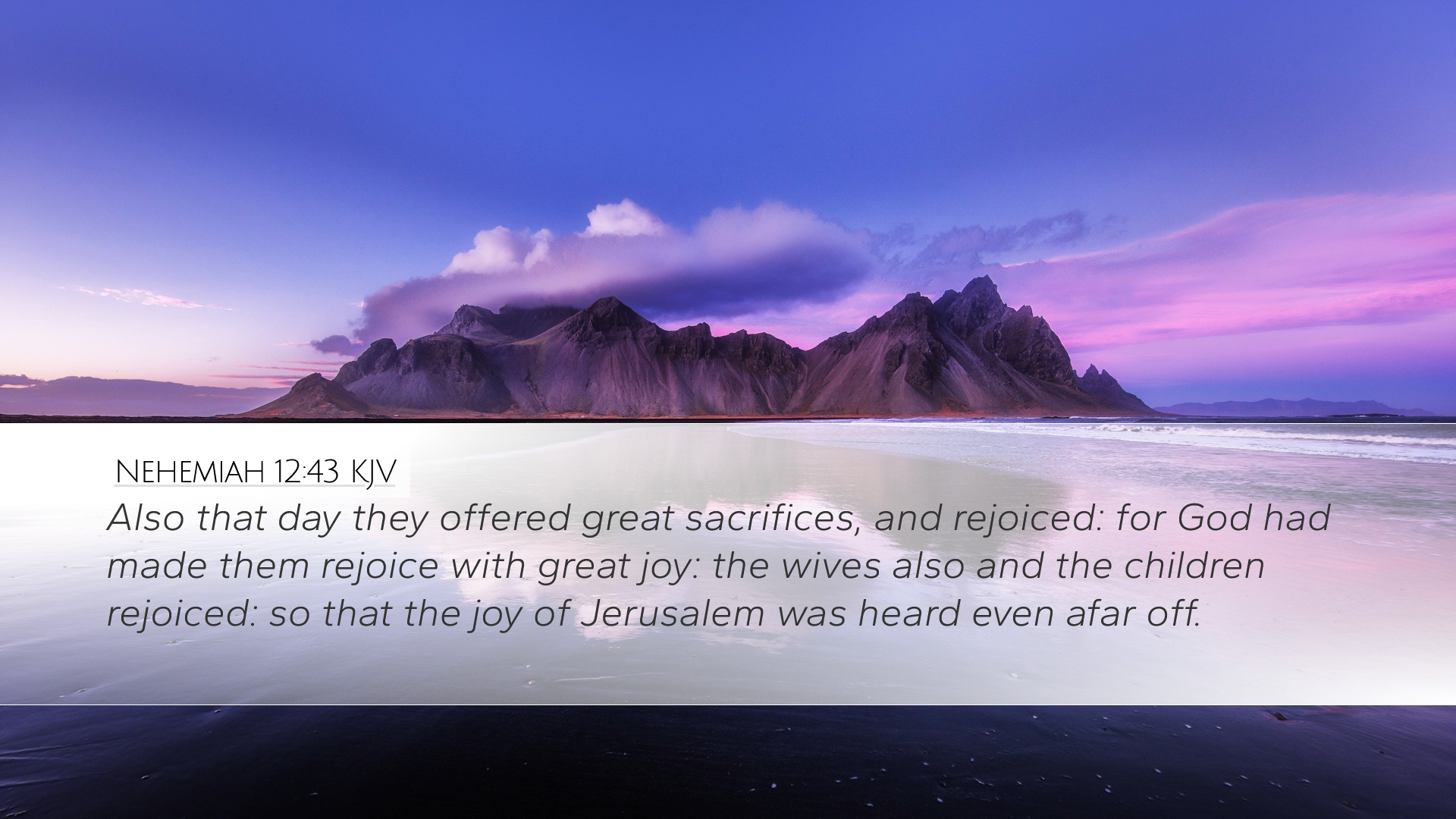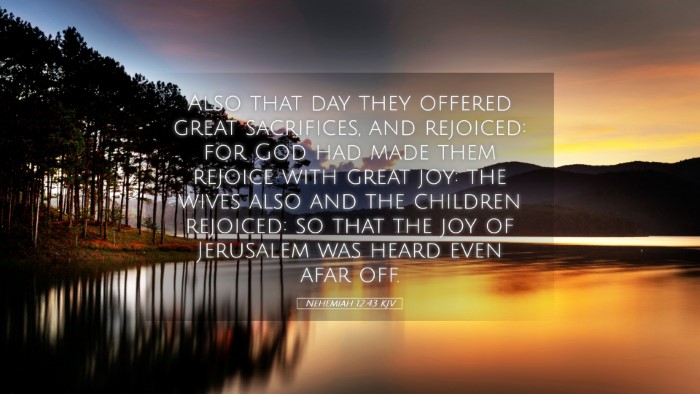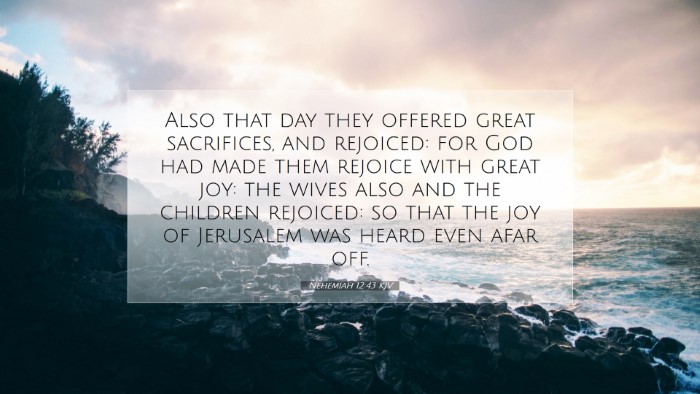Contextual Background
This verse is situated in the historical narrative of Nehemiah, focusing on the restoration of Jerusalem after the Babylonian exile. Nehemiah had returned to rebuild the city and its walls, a monumental task that involved physical labor, leadership, and above all, spiritual renewal. This verse follows a triumphant completion of this endeavor, culminating in a celebration that reflects the deep-seated joy among the people.
Insights from Public Domain Commentaries
Matthew Henry's Commentary
Matthew Henry emphasizes the significance of communal worship and the joy that accompanies it. He notes that the sacrifices offered were not merely routine but were indicative of the people's gratitude and dedication to God following the restoration of Jerusalem. According to Henry, the joy was not isolated to a select few but enveloped the entire community, including women and children, indicating a holistic experience of worship.
He states, "The joy of the Lord is our strength," implying that their rejoicing was not just a reaction to favorable circumstances but a recognition of divine intervention in their lives. This underscores the theological point that true joy stems from a relationship with God and His redemptive acts.
Albert Barnes' Notes on the Bible
Albert Barnes highlights the communal nature of the sacrifices in this verse. He points out that the Israelites offered great sacrifices that symbolize their immense gratitude and recognition of God’s mercy. He notes that the emphasis on “great joy” suggests an exuberant celebration that was profound enough to be felt beyond the city walls, portraying a communal sentiment of restoration and hope.
Barnes argues that such joy signifies not only personal satisfaction but also a collective identity reforming around God’s promises fulfilled, reinforcing the importance of worship in community life.
Adam Clarke's Commentary
Adam Clarke takes a deeper look at the specifics of the celebrations. He comments on the sacrificial offerings as expressions of joy and reverence towards God, capturing the essence of a covenant community that rejoices in God's providence. Clarke posits, "It is good to praise the Lord, and to sing praises unto thy name, O most High,” reminding his readers of the significance of worship as a community practice that fosters unity and spiritual vigor.
Moreover, Clarke emphasizes that the joy of Jerusalem being “heard even afar off” signifies a testimony of their faith to surrounding nations, serving as a reminder of the influence of communal worship on broader contexts.
Theological Reflections
The joy expressed in Nehemiah 12:43 reaches beyond the immediate context; it speaks to the theological implications of restoration, community, and worship. The sacrifices represent not just an act of worship but a profound acknowledgment of God’s faithfulness amidst adversity.
- Restoration and Renewal: The sacrifices and joy symbolize the restoration of not only the walls but also the people’s faith, identity, and relationship with God. This concept is central to the theological underpinnings of both the Old and New Testaments.
- Community and Collective Identity: The participation of families—“wives and children”—illustrates that spiritual renewal involves all of society, reflecting the holistic nature of worship that encompasses every demographic within the community.
- Worship as Witness: The joy of Jerusalem "heard even afar off" serves as a testament to the surrounding nations of God’s glory and faithfulness, demonstrating how authentic worship can resonate beyond its immediate context to have implications for evangelism and witness.
Practical Applications for Today
For pastors, students, theologians, and scholars, Nehemiah 12:43 provides several important lessons:
- Emphasizing Worship: Churches should cultivate an environment where joyous worship is central, reflecting the communal aspect of faith as depicted in Nehemiah.
- Celebrating God’s Faithfulness: Regular emphasis on thanksgiving and praise in community gatherings can rejuvenate the faith narrative within congregations, encouraging a communal response to God’s goodness.
- Engaging Families: Acknowledge the role of families in worship, understanding that children and spouses play a significant part in the life of the church, as seen in the text.
- Witnessing Beyond Walls: Encourage congregations to understand their worship as testimony to the broader community and recognize the larger impact of their collective joy and faith.


